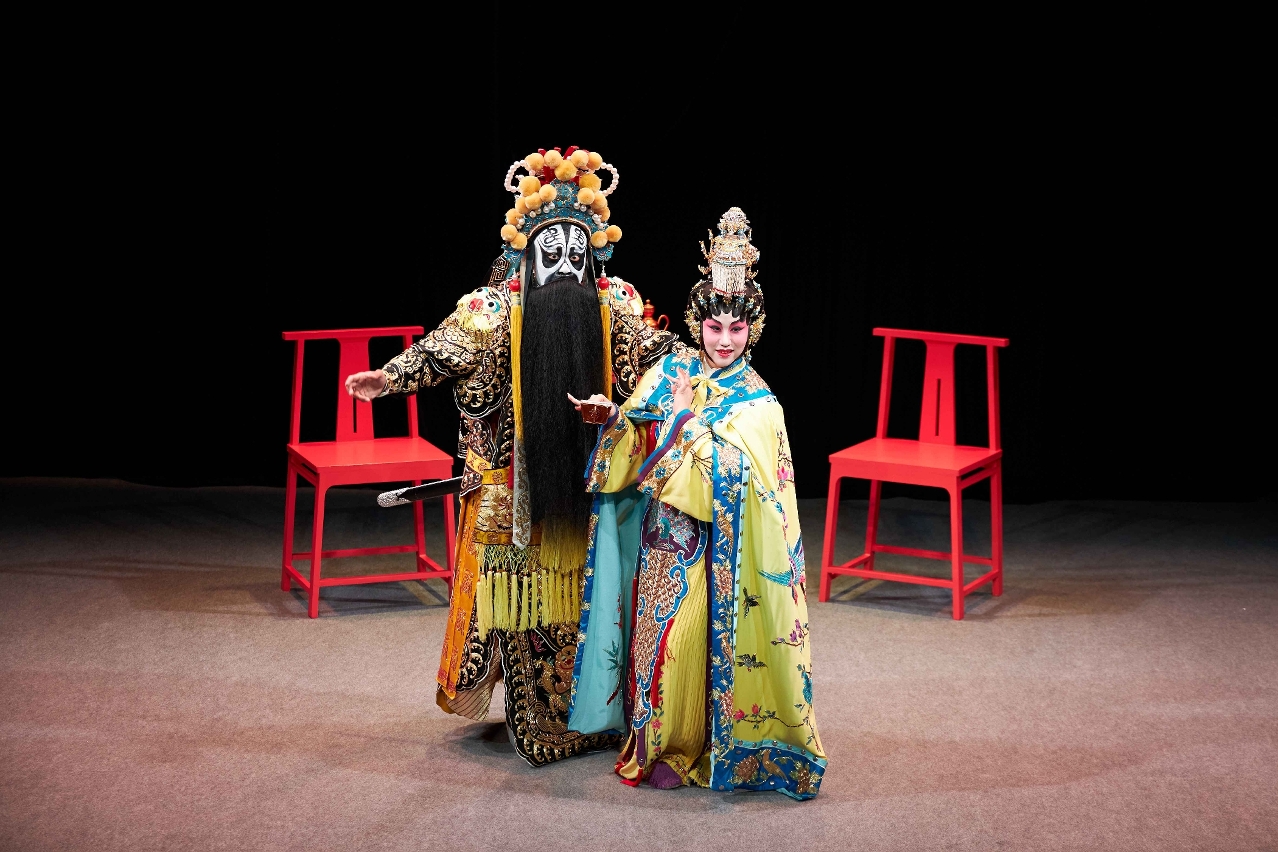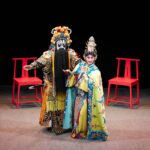 Farewell My Concubine ©西九文化區管理局West Kowloon Cultural District Authority
Farewell My Concubine ©西九文化區管理局West Kowloon Cultural District Authority
Organised by the Cultural Affairs Bureau, this week the 33rd Macao Arts Festival (MAF) will present Farewell My Concubine (New Adaptation) and will close with the Patuá theatre play Carnavaland. Limited tickets are still available for both programmes.
The Experimental Cantonese Opera Farewell My Concubine (New Adaptation) will be staged on 26 and 27 May at the Macao Cultural Centre’s Small Auditorium. The production is the first work commissioned to the Xiqu Centre, West Kowloon Cultural District, featuring Keith Lai, a protégé of Cantonese opera masters Man Chin-sui and Poon Sai-lun, who is the playwright, director, music arranger and actor (as Xiang Yu). Keith Lai has been invited to participate in various arts festivals in Asia and won numerous awards. In 2010, he was recognised with the Most Promising Actor Award (Young Male Opera Role) by the Chinese Artists Association of Hong Kong and RTHK Radio 5. In 2011, he was presented with the Award for Young Artist (Xiqu) by the Hong Kong Arts Development Council and, in the same year, founded the troupe Canto Op with the aim of promoting Cantonese opera with a new image. Blending traditional and innovative concepts, Farewell My Concubine (New Adaptation) demonstrates the evolution and development of Cantonese opera from a traditional performance style into a contemporary one. The storyline focuses on the affections between Xiang Yu and Concubine Yu, delicately portraying the overlord’s feelings, striving to present to the audience a new narrative perspective.
On the occasion of the 30th anniversary of its establishment, the Dóci Papiaçám di Macau Drama Group will present the Festival closing performance, the Patuá theatre play Carnavaland from 26 to 28 May at the Macao Cultural Centre’s Grand Auditorium. The production revolves around Macao in the post-pandemic era and maintains the characteristics of traditional theatre while interpreting the familiar subject in a humorous and intriguing manner. Patuá theatre is a unique type of performance art by the Macanese community and was inscribed on the “National List of Representative Elements of Intangible Cultural Heritage of China” in 2021. Macanese Patuá is a creole originated from the ancient Portuguese language, featuring a combination of Malay, Spanish, Canarese, English and Cantonese, fully reflecting the characteristics of Macao as a city where East meets West and where different cultures coexist. On the same occasion, the “Doci Papiaçám di Macau – 30 Years of Multiculturalism on Stage: A Photographic Exhibition” will be held, inviting the public to savour the vitality of this item of national intangible cultural heritage from multiple perspectives across time.
In addition, the show The Ocean, jointly produced by DKS Shanghai and British composer Dominic Harlan, will be held from 26 to 28 May at the Macao Contemporary Art Centre - Navy Yard No. 2, leading the audience to listen to the minds of sea creatures. Lift Left Life Live by PO Art Studio will be staged from 25 to 29 May at the Lobby, G/F, Macau Tower Convention & Entertainment Centre, taking the public on a “fantastic journey”.
For more information about the programmes, ticket purchase and discounts, please visit the MAF’s website ( www.icm.gov.mo/fam ), follow the respective page on Facebook (search for “Macao Arts Festival”), or subscribe to IC’s official WeChat account (IC_Art_Macao). Ticketing hotline: 2855 5555; ticketing website: www.macauticket.com.





